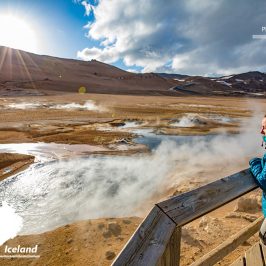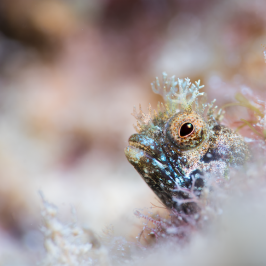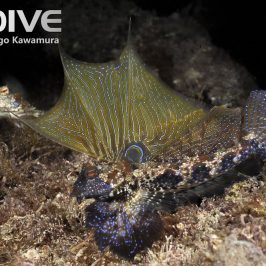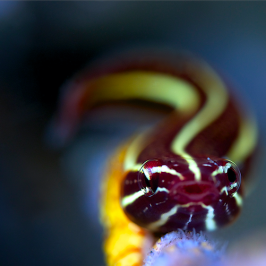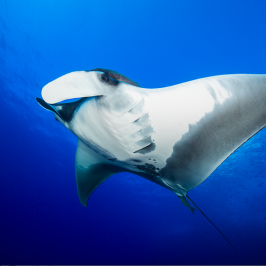Sharks have roamed the oceans for over 400 million years, long before the existence of dinosaurs. These ancient creatures are not just iconic symbols of marine life; they play a vital role in maintaining the health and balance of our ocean ecosystems.
Text by Brendon Sing (Shark Guardian)
Photo by Steve Woods, Brendon Sing(Shark Guardian)
The Crucial Role of Sharks in Our Oceans
As apex predators, sharks regulate the populations of other marine species, ensuring that the ecosystem remains balanced. By preying on the weak, sick, or old members of prey species, sharks help to maintain the health of fish populations, prevent the overpopulation of any one species, and promote the diversity necessary for a resilient ocean environment.
Without sharks, the balance of marine ecosystems would be disrupted. For example, the decline of shark populations has been linked to the overpopulation of species like rays and skates, which in turn can lead to the
depletion of shellfish populations. This cascade effect can have devastating consequences for local fisheries and economies that depend on them. Thus, sharks are not just the kings of the ocean, but also crucial stewards of the marine environment, playing an essential role in the delicate web of life beneath the waves.

The Grim Reality: How Many Sharks Are Killed Each Year and Why?
Despite their importance, sharks are being slaughtered at an alarming rate. It is estimated that around 100 million sharks are killed each year. This staggering number is driven largely by the demand for shark fins, which are used to make shark fin soup—a delicacy in some cultures, particularly in parts of Asia. The practice of shark finning, where the fins are cut off and the rest of the shark is discarded back into the ocean, often while still alive, is not only wasteful but also incredibly cruel. The sharks are left to sink to the ocean floor, where they die a slow and painful death.
Apart from shark finning, sharks are also killed for their meat, liver oil, cartilage, and skin. Shark meat, known as ‘flake’ in some regions, is consumed in various parts of the world, while shark liver oil is used in cosmetics, health supplements, and lubricants. The cartilage is often sold as a supplement for joint health, despite a lack of scientific evidence supporting its benefits. Additionally, shark skin is used to make leather products. All of these industries contribute to the unsustainable exploitation of sharks, pushing many species closer to extinction.
Sharks on the Brink: How Many Are Endangered?
Sharks are facing a crisis of extinction, with more than 30% of all shark species now threatened with extinction. According to the International Union for Conservation of Nature (IUCN), over 140 species of sharks are currently listed as endangered or critically endangered. The primary threats to sharks include overfishing, bycatch (when sharks are unintentionally caught in fishing gear targeting other species), and habitat destruction.
Some of the most endangered sharks include the Great Hammerhead, the Scalloped Hammerhead, and the Oceanic Whitetip Shark, all of which are listed as critically endangered. The loss of these species would not only be a tragedy in its own right but would also have far reaching impacts on marine ecosystems, leading to a loss of biodiversity and the degradation of ocean health.

Shark Guardian: Leading the Fight for Shark Conservation
Amidst this dire situation, organisations like Shark Guardian are stepping up to protect these magnificent creatures. Based in the UK, Shark Guardian is a charity dedicated to shark and marine conservation through education, research, and action. The organisation runs several campaigns aimed at ending the shark fin trade, including the UK Shark Fin Ban campaign, which successfully banned the import and export of shark fins
in the UK (2023). By lobbying governments and working on an industry level, Shark Guardian aims to curb the demand for shark fins and reduce the number of sharks killed each year.
Education is another cornerstone of Shark Guardian’s efforts. The charity provides shark conservation presentations in schools, raising awareness among the younger generation about the importance of sharks and the threats they face. These educational initiatives are complemented by citizen science projects, where the public can contribute to shark research by collecting data that supports greater protection for sharks worldwide.

One of the unique aspects of Shark Guardian’s work is their shark diving expeditions. These trips not only offer participants the chance to dive with sharks in their natural habitat but also include educational and research components. By showing people the beauty and majesty of sharks up close, these expeditions help to dispel the myths and fears surrounding sharks and demonstrate that these animals are worth far more alive than dead.
For instance, in popular shark sanctuary locations like the Maldives, the tourism revenue generated by live sharks far outweighs the value of a shark killed for its fins. A study conducted in Palau found that a single reef shark can generate around $1.9 million in tourism revenue over its lifetime, compared to just a few hundred dollars if it were killed for its fins. This stark contrast highlights the economic value of shark conservation and the importance of protecting these animals not just for ecological reasons but also for the livelihoods that depend on them.
Summary
Sharks are essential to the health of our oceans, but they are under threat like never before. With millions of sharks killed each year for their fins, meat, and other products, and many species now endangered, urgent action is needed to protect these incredible animals. Organisations like Shark Guardian are leading the charge, through campaigns, education, research, and conservation efforts, to ensure that sharks continue to thrive in our oceans for generations to come. By supporting these initiatives and spreading awareness, we can all play a part in safeguarding the future of sharks and the marine ecosystems they help sustain.
For more information about Shark Guardian:

